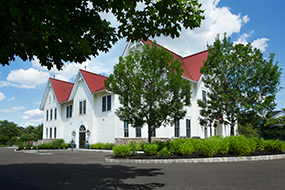Mild Brain Injury Can Increase Risk of Alzheimer’s
Posted By: Tony Baratta | December 8th, 2016

The association between traumatic brain injury (TBI) and the risk of Alzheimer’s/dementia remains controversial and not yet resolved conclusively. However, there are a number of studies to suggest that there is a link.
Alzheimer’s
An estimated 5 million Americans have Alzheimer’s disease. The breakdown of people with Alzheimer’s by age:
- 65-74 (2%)
- 75-84 (19%)
- Over 85 (42%)
If one has a family history of Alzheimer’s, the risk is a two-fold increase:
- 65-74-4%
- 74-85- 38%;
- Over 85-84%
Couple a family history of Alzheimer’s with a traumatic brain injury (TBI) and some studies show the risk is a ten-fold increase:
- 20% if live to age 65
- 100% if live to 85
Dementia
Some studies show that people sustaining a TBI are four times more likely to develop dementia later in life than those who have never suffered a TBI. Moderate to severe TBI is associated with increased risk for dementia across all ages whereas mild TBI may be a more important risk factor with increasing age.
The results of these studies are important for a lawyer who represents brain injured people. For a person who suffers a brain injury at 30 years old, he has another 50 years of life expectancy, and will live for a long time after his lawsuit seeking damages for his harms and losses is finished. The brain injured client has only one chance to receive compensation for all of the harms and losses he has suffered in the past and will suffer in the future. Given the possible increased risk of Alzheimer’s and dementia, these potential future harms should be considered in understanding the full extent of those harms and losses. Such potential future losses include that most TBI patients will likely need some degree of assisted living beyond the age of 65 and total care should they live beyond 75. This increased cost of care should be borne by the person responsible for the harm, not taxpayers in the form of Medicaid or Medicare.
Medical Evidence
There is increased evidence that neurodegeneration after TBI shares some features of Alzheimer’s disease and dementia. The evidence is seen in the following forms:
Animal studies have shown that neurodegeneration and progressive brain atrophy continues at least 1 year after TBI injury. Several proteins (amyloid and tau) associated with neurodegenerative disease in humans have been demonstrated to accumulate following experimental TBI in rodents.
Human studies, which could only be conducted at autopsy, are limited, but 30% of patients who die acutely following TBI have been found with amyloid plaques. In an autopsy study of 39 persons who survived between 1 and 47 years after a single TBI, amyloid plaques and neurofibrillary tangles were present in a third of patients.
Imaging studies reveal that neurodegeneration after TBI shares some features of Alzheimer’s disease. The regions of the brain that show most prominent atrophy after TBI overlap closely with regions of predominant amyloid deposition and progressive atrophy in Alzheimer’s patients. Other imaging studies over time following TBI showed significant decreases in regional volume, suggesting that TBI accelerates the rate of brain atrophy.
At the molecular level, the beta secretase enzyme (BACE1 enzyme) is essential for generation of the amyloid protein. In addition to evidence that a single TBI is associated with increased levels of amyloid in both human and animal studies. , Experimental TBI in rodents has been reported to increase levels of BACE1 suggesting that BACE1 elevation may be responsible for amyloid protein production following TBI. BACE1 increases following cerebral ischemia in rodents. BACE1 has been found to be elevated in Alzheimer’s patients. Other molecules have been found to stabilize BACE1. In both Alzheimer’s and TBI patients, these stabilizing molecules are decreased allowing for the increased production of BACE1 which leads to increased production of amyloid protein. Amyloid production further reduces the stabilizing effect of other molecules, further increasing BACE1, leading to a vicious cycle of neurodegeneration in TBI.
Abnormal tau deposition may be the most important neuropathological factor in the eventual development of dementia in TBI patients. Autopsy studies have shown a robust tau pathology in humans and in mice with TBI. After TBI, neurons acutely produce tau, which disrupts axonal networks and spreads tau to other neurons, leading to cell death.
These findings suggest that TBI may accelerate the onset of Alzheimer’s disease and dementia and also that the severity of the TBI correlates with increased risk of Alzheimer’s.
Whereas a single brain injury is linked to later development of symptoms resembling Alzheimer’s disease and dementia, repetitive brain trauma is linked to later development of chronic traumatic encephalopathy (CTE) and dementia pugilistica.
If someone important to you has suffered a brain injury due to another’s carelessness, it is important that you choose a lawyer who understands that treatment is needed, the kind of treatment that is needed, and can help prove that the unseen injury to the brain is real and has long lasting effects.
About the Author
Anthony J. Baratta (Tony) is a trial attorney. He has tried more than 50 cases to Juries in State and Federal Courts and has litigated thousands of personal injury and medical malpractice cases in his 30-year career. Tony is the founding partner of Baratta, Russell, & Baratta and an active board member of the Pennsylvania Brain Injury Association (BPIA). Tony is also on the board for the Philadelphia VIP and performs pro bono work for the Laurel House, a non-profit for victims of domestic abuse. In addition, Tony is a member of the Million Dollar Advocates Forum for trial attorneys, voted one of Philadelphia’s Super Lawyers for the past 14 years, and a 2018 recipient of the First Judicial District Pro Bono Award for the Civil Trial Division.

